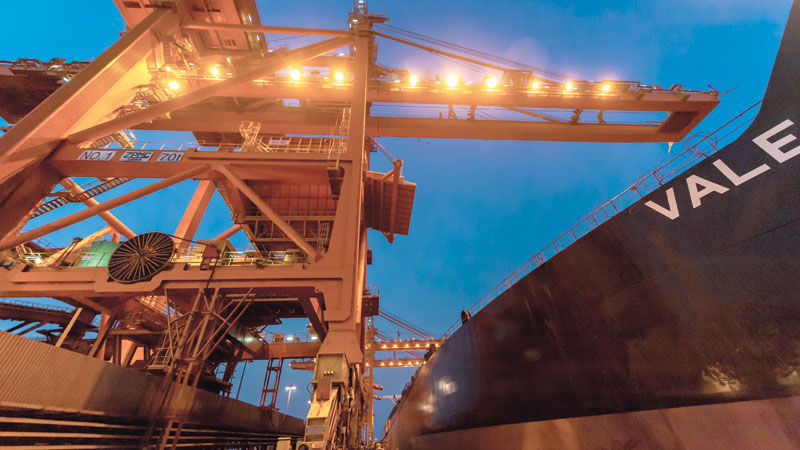

ECONOMIC BOOST: The Sultanate maintains fourth highest global ranking for Market Compatibility
BUSINESS REPORTER -
MUSCAT, JAN 23 -
The Sultanate of Oman has maintained its number 13 ranking on the 2018 Agility Emerging Markets Logistics Index, also keeping its top ten ranking in the Market Compatibility (3) and Market Connectedness (6) indices.
The Compatibility sub-index is effectively a measure of market accessibility and the ease of doing business.
Six of the top 10 ranked markets for Compatibility come from the Middle East & North Africa region. The business climates, infrastructure and transport connections of leading Gulf economies continue to be the best offered by the world’s emerging markets, according to Agility’s annual global logistics industry report.
When it comes to business conditions, Oman, along with the United Arab Emirates and Bahrain outclass all other countries in the 50-nation 2018 Agility Emerging Markets Logistics Index, a broad gauge of economic competitiveness. Saudi Arabia is No 8; Kuwait is No 16.
Countries in the region also rank at or near the top of the Index in quality of infrastructure and transport connections. UAE (1), Bahrain (5), Oman (6) and Saudi Arabia (7) were top performers.
“Oman is emerging as a strong logistics hub with its Sohar Port that is set to benefit from a significant increase in volumes. The countries in the region are moving aggressively to spur non-energy economic growth, create jobs, lure new investment, and develop knowledge economies,” says Elias Monem, CEO of Agility Middle East and Africa. “In the Gulf, it’s never been easier to start or buy a business, to commercialise a good idea, to find and hire young talent, and to plug into the global economy.”
The giant, fast-growing economies of China and India continue to dominate the overall emerging markets rankings. The Index, in its ninth year, is a broad gauge of economic competitiveness that includes a survey of more than 500 logistics industry professionals and a data-driven analysis of 50 emerging markets countries by size, economic strength, infrastructure, transport connections and business climate.
Egypt is the standout of the 2018 Index, vaulting six countries to No 14 in the rankings, the largest jump of any emerging market.
Key Index and Survey Highlights
n Egypt’s improving business climate drove its surge in the Index. In Market Compatibility, the category of the Index that looks exclusively at business conditions, Egypt shot up 26 spots, the most dramatic jump made by any country in any portion of the Index since it was first published in 2010. Egypt also improved its rank three spots in the area of the Index that evaluates infrastructure and transport connections.
n Emerging markets growth prospects look brighter than they have in years to logistics industry executives, who say small and medium-sized companies are the most likely to benefit from fresh acceleration of those economies. Nearly two-thirds surveyed agree with the International Monetary Fund’s 2018 emerging markets forecast of 4.8-4.9 per cent GDP growth. That would mark the fastest expansion for emerging markets since 2013 and a second consecutive year of higher growth for developing economies, which have slowed dramatically since a 7.4 per cent GDP gain in 2010.
n There is no consensus among supply chain professionals when it comes to the Trump administration’s high-stakes brinkmanship with Mexico and Canada in negotiations aimed at updating the North American Free Trade Agreement (Nafta). They are sharply split about whether a new agreement would help Mexico (24.3 per cent hurt Mexico (21.8 per cent); or leave trade broadly unchanged (25.7 per cent ).
n Logistics executives are unconcerned, for now, that emerging markets economies will be harmed by Brexit, the UK’s departure from the European Union. Nearly 45 per cent say emerging markets will be unaffected; 25.4 per cent say emerging markets could gain from Brexit through expanded market access. A year ago, nearly 69 per cent expressed concern that Brexit and the failure of various trade initiatives were a threat to trade.
n Fifty-five percent of those surveyed say small and medium-sized businesses — those with fewer than 250 employees — will benefit most from emerging markets growth. Twenty-six percent said large companies would be the biggest beneficiaries.
n Cheap labour is losing its attraction as a driver of emerging markets growth in the eyes of logistics professionals. They rate economic growth, foreign investment, trade volumes, location and transport infrastructure as more important factors.
Transport Intelligence (Ti), a leading analysis and research firm for the logistics industry, compiled the Index. John Manners-Bell, Chief Executive of Ti, says: “Emerging markets enjoyed favourable market conditions in 2017 with trade growth the healthiest in years. However, there are many storylines yet to fully unfold, such as China’s debt, the renegotiation of Nafta and ongoing political and economic transition in the Middle East. While the going looks good for now, there are numerous challenges on the horizon.
Oman Observer is now on the WhatsApp channel. Click here



